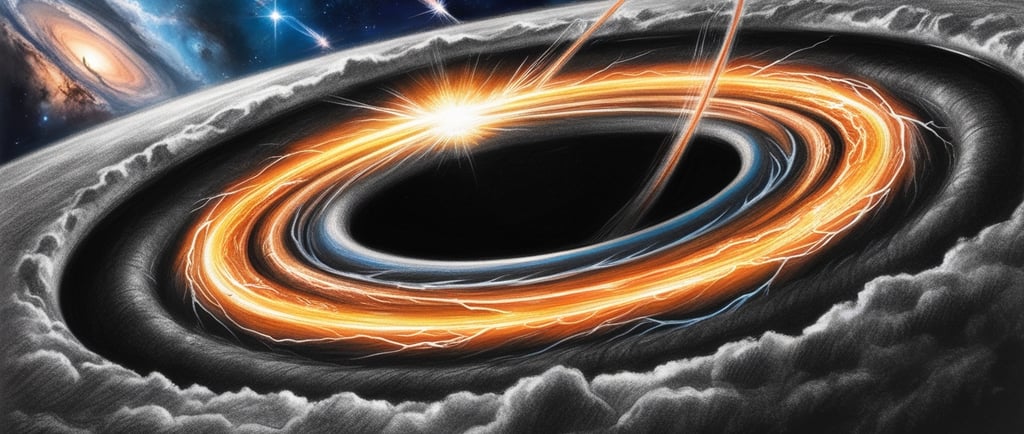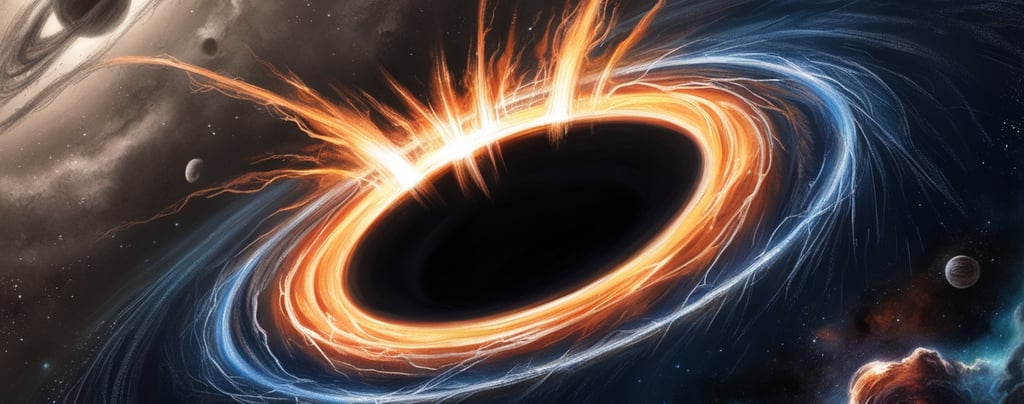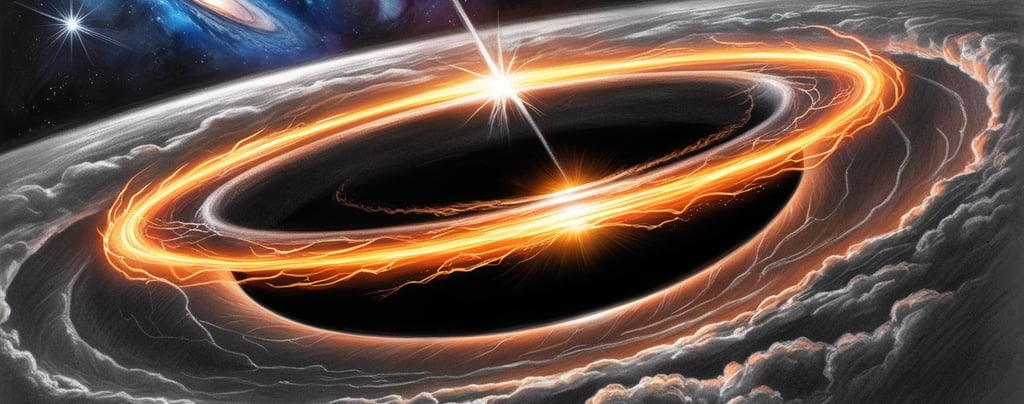How Black Holes Work: A 2025 Guide
Discover how black holes really work in 2025, including their formation, event horizons, and singularities. Explore the latest scientific theories that could reshape our understanding of space and time.
Black Heart
3/30/20253 min read


How Do Black Holes Really Work in 2025?
Introduction
I’ve always found black holes intriguingly poetic, sealed-off vaults in the cosmos where gravity reigns supreme. So in 2025, how do we actually understand them? It’s not just about holes in space; it’s about the bending of reality itself.
1. What is a Black Hole?
A black hole is a region in space where gravity is so intense that nothing, not even light, can escape. It begins with a dense concentration of matter packed into a tiny area, creating an event horizon: the point of no return.
They're typically formed when massive stars collapse under their own weight, or through more exotic processes that scientists are still uncovering.
2. How Do We Detect Something Invisible?
Since black holes emit no light, scientists spot them by observing how they affect their surroundings. Matter drawn toward a black hole forms a hot, glowing accretion disk, and those glowing signatures, like X-rays and jets, tip us off.
We’ve even captured the silhouette of a black hole’s shadow, like in the famous Event Horizon Telescope images of M87 and Sagittarius A.


3. What Lies Beyond the Horizon?
At a black hole’s core lies a singularity, an infinitely dense point where physics as we know it breaks down. Approaching it, you’d undergo spaghettification, a stretching effect caused by the massive differential gravity, elongating objects like pasta.
4. Can We Escape a Black Hole?
Once you cross the event horizon, escape is impossible. The escape velocity there exceeds the speed of light, the ultimate cosmic trap.
5. Rotating Black Holes & Energy Extraction
Some black holes spin, dragging spacetime around them. This creates an ergosphere, a region where it's possible, in theory, to extract energy via mechanisms like the Penrose process or the Blandford–Znajek process, the latter powering those famous astrophysical jets and quasars.


6. Do Black Holes Evaporate?
Quantum theory tells us that black holes might emit Hawking radiation, a faint glow of particles escaping just outside the event horizon. Over incredibly long timescales, this could lead to black hole evaporation.
7. Why Do They Matter in 2025?
We’re now observing black holes in action, through gravitational waves, images, and radiation.
Theorists grapple with unresolved mysteries like the information paradox: Can information truly vanish inside a black hole?
Discoveries continue to surprise, even revealing previously unknown black holes or unusual formation paths.
FAQ
Q: What’s a black hole’s event horizon?
A: It’s the “point of no return” boundary, once crossed, not even light can escape.
Q: What is spaghettification?
A: A dramatic stretching effect caused by extreme tidal forces near a black hole’s singularity.
Q: How do scientists image black holes?
A: Using arrays like the Event Horizon Telescope and observing glowing accretion disks and gravitational impacts.
Key Points
Black holes bend space and trap light, gravity’s ultimate power.
Infalling matter makes them visible via hot accretion disks and jets.
The event horizon marks the limit of escape and observation.
The singularity defies physics, and gravity overwhelms known laws.
Rotational energy can be tapped through theoretical processes in spinning black holes.
They may evaporate via quantum effects.
They’re essential cosmic laboratories for testing Einstein’s theories and beyond.
Final Thoughts
In 2025, black holes remain both mystery and marvel, real, unseeable powerhouses that test the boundaries of physics. I think the most exciting part isn't just how they destroy, but how they challenge our understanding of reality and hint at deeper truths waiting to be discovered.